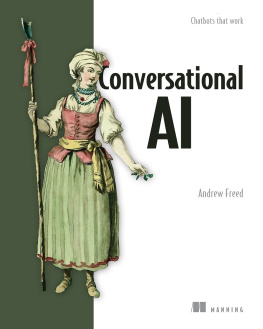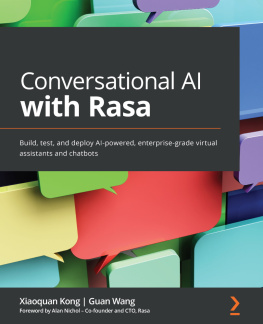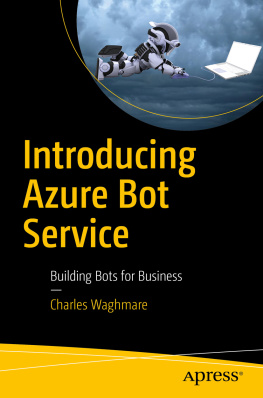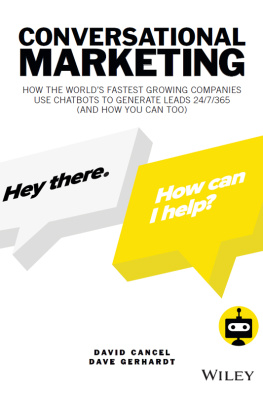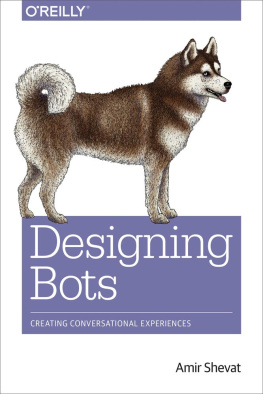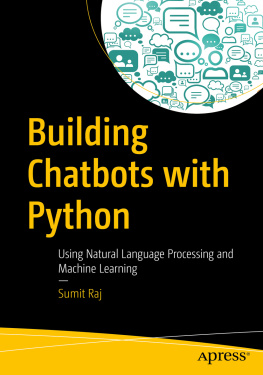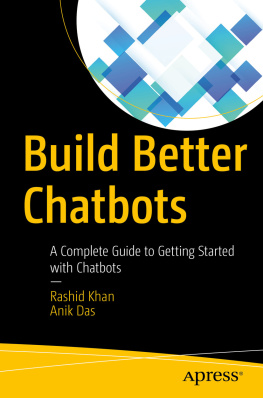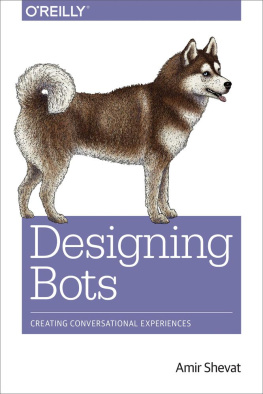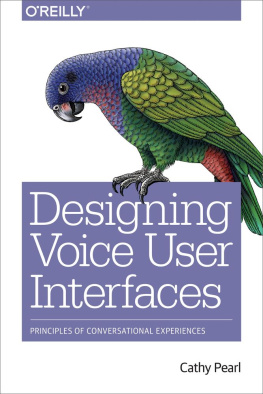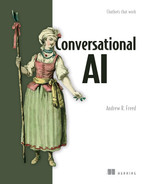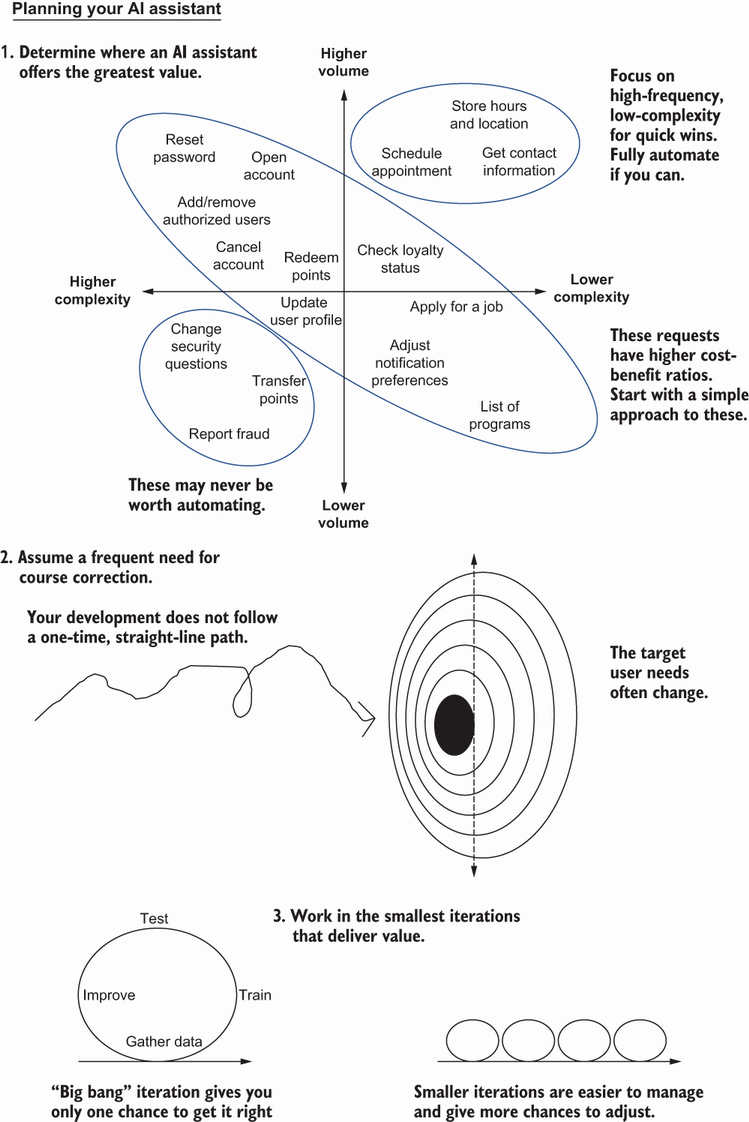front matter
preface
Ive been a software developer and architect for 18 years, with half of that time spent building artificial intelligence solutions. Ive built several conversational AI solutions and various other AI assistants. In those 18 years, Ive read and learned from more books, blogs, and podcasts than I can count. Im excited to give back by producing original content of my own. I like to say that Ive been standing on the shoulders of giants for long enough now; Id like to be a giant for someone else. I look forward to hearing about the wonderful solutions that readers of this book are going to build.
In this book, I will walk you through all aspects of building, designing, training, testing, and improving an AI assistant, with a primary focus on conversational AI. This book includes several hard lessons Ive learned along the way and shared with you so that you dont have to make the same mistakes.
When I first learned about conversational AIs, I assumed that they were just a handful of dialogue rules sprinkled on top of a machine learning algorithm. Ive come to appreciate that there is so much more to building an AI assistant than that.
AI assistants are a powerful new technology that allow users to do what they want, when they want to, the way they want to. You use AI assistants every day, from the assistant on a smartphone, to a chatbot or automated voice system, to email systems that sort your incoming mail.
The global COVID-19 pandemic accelerated a trend towards self-service automation through conversational AI assistants. Now more than ever, companies are looking for ways to increase self-service capability. A common path is to automate routine customer inquiries and free up support staff for higher-value activities.
The book is written from the perspective of the company Fictitious Inc. and tells how they have built their first conversational AI to serve their customer service needs. The book is not tied to a specific AI platform. The demo in chapter 2 is built on IBMs Watson Assistant, but includes conceptual translations on how to build this AI assistant in any other platform. The other chapters use generic Python code or pseudocode that can be adapted to your platform of choice. After reading this book, you will have a solid foundation in AI assistants.
AI assistants have come a long way since Ive started building them. The technology gets better every day. Even so, the basic technology can only take you so far. This book shows you how to make AI technology work for you.
acknowledgments
You may have heard that writing a book is a lot of work. Ive come to understand what an understatement that is. While this book only has one name on the cover, it took a lot of people to make this book a reality.
Thank you to my wife, Elise, and my sons, Greg and Jeff. I spent so much time away from you this year. Thank you for supporting me throughout this project. Special thank you to Mom and Dad for a lifetime of encouragement.
Thank you to Michael Stephens for believing I could write a book. Thank you to my editor, Tricia Louvar, for teaching me how to write a book and for keeping the project on track. Thank you to my technical editor, Fran Buontempo, for your insightful remarks on every chapter and your fresh perspective, which taught me so much. Thank you to Bert Bates for teaching me how to teach through a book. Thank you to Jennifer Houle for taking my drawings and making them look amazing. Thank you to Keir Simpson for polishing the entire manuscript.
To all the reviewers: Aaron Barton, Bhagvan Kommadi, Bill LeBorgne, Daniel Carl, Fernando Antonio da Silva Bernardino, Hvard Wall, Irfan Ullah, James Black, John Stephen Villarosa, Jr., Jon Riddle, Jose Luis Perez, Joseph Perenia, Lokesh Kumar, Lonnie Smetana. Marc-Anthony Taylor, Maxim Volgin, Richard Vaughan, Salil Athalye, Shivakumar Swaminathan, Simeon Leyzerzon, Sowmya Vajjala, Steve Grey-Wilson, Steven Herrera Corrales, Thomas Joseph Heiman, and Zoheb Ainapore, your suggestions helped make this a better book.
Thank you to my colleagues at IBM for reviewing my early drafts: Anuj Jain, Cheryl Howard, Leo Mazzoli, Marco Noel, Murali Vridhachalam, Preeth Muthusamy, Rebecca James, Rich Nieto, Saloni Potdar, Sheetal Reddy. Special thanks to Cari Jacobs for her exceptionally thorough reviews. You all made this book better!
Thank you to my mentors who encouraged me and showed me the way: Stacey Joines, Rob Murgai, Dick Darden, Naeem Altaf, and Kyle Brown. The smallest of encouraging nudges can go a long way.

